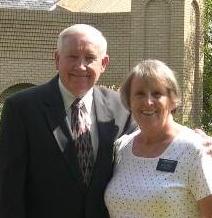
Learning is Eternal
Knowledge is the only thing you can take with you into the next life. When you learn that knowledge is yours forever. No one can take it away. Once you learn something it is yours for eternity.
Knowledge is the only thing you can take with you into the next life. When you learn that knowledge is yours forever. No one can take it away. Once you learn something it is yours for eternity.
Meet Frere Bakanjeka – Bakanjeka is the director of the Ecole Scolair
 e Presbyterian (Primary School) He came to us asking for help with books for his students. We visited his school and found a very clean open school with 500 students. Approximately 40% of the students are on scholarship because of inablity to pay tuition. Tuition runs about $20 for 3 months. The students did not have any books but were taught by teachers writing on the blackboard painted walls and then the students reading what had been written. This man was delightful and looking for a way of helping his students get the best education possible.
e Presbyterian (Primary School) He came to us asking for help with books for his students. We visited his school and found a very clean open school with 500 students. Approximately 40% of the students are on scholarship because of inablity to pay tuition. Tuition runs about $20 for 3 months. The students did not have any books but were taught by teachers writing on the blackboard painted walls and then the students reading what had been written. This man was delightful and looking for a way of helping his students get the best education possible. He had a list of books covering French 1,2,3 and 4, mathematics, history, and social science. The church has an education program on Family Health and Hygiene. We offered him this program for his students and he was so excited he stated they had been looking for a health program to teach their students and our program would work very well.
The project was written up and sent to Area Authorities in Johanasburg for approval. The project was approved and w
 e spent almost two weeks getting the books for his students.
e spent almost two weeks getting the books for his students.We took the books to the school and presented the studentbody with their new books. When we arrived the students were all standing outside waiting for our arrival. This country is big on ceremony and they were prepared with a program honoring the church’s efforts and allowing the students to show their appreciation. We all sat under a large mango tree in the schoolyard and the program proceeded.
The books were presented to Frere Bakanjeka by the local bishop, then several students recited poems, sang songs and cheered. The students were excused to go back to class and we then sat down and had ate (another traditional part of
 the ceremony.) We were given the proverbial Orange Fanta, bananas and roasted peanuts.
the ceremony.) We were given the proverbial Orange Fanta, bananas and roasted peanuts.When we finished the students came backout into the yard for a break and we mingled with them and took pictures.
Frere Bakanjeka was so excited and pleased. He said the books would be used for those students who were very serious about learning and had proven their desire by their actions.
Frere Bakanjeka spoke in the ceremony and said he was afraid that we would not help him since he was of another religion. He was pleasantly surprised when we got excited to help him and found a way to help his school. He said it is not the way in the Congo for one religion to help another. He then said that it showed we are all Christians and understand the teachings of Christ in loving one another.
In all the school was given over 500 books. Not enough for all the students but more than they had before we started. It was a grand day and profitable in that we were able to find a good place to use humanitarian funds to str
 engthen a good organization.
engthen a good organization. This sister on my right is a minister. She was so pleased to be a part of this "cooperative effort" between her church and our church. Note the beautiful Congolese dresses worn by these women.
We are ready for more great projects like this one.
Elder and Soeur Barlow









